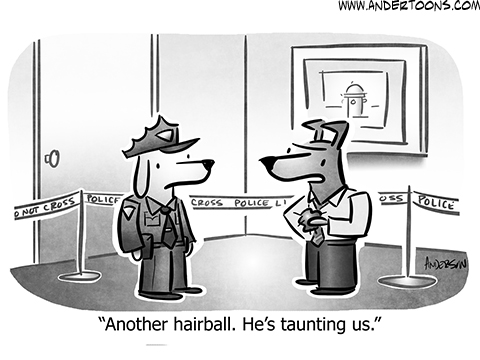In just a few days, we’ll be celebrating Independence Day with family and friends. Are you planning on including your animal companion in the festivities? Remember: the Fourth presents a few pet hazards to be aware of! Learn more below from a vet in Roanoke, VA.
Fireworks
Tempting as it may be, don’t bring your dog to the local fireworks display. Each year, thousands of pets are frightened into running off thanks to the deafening booms of fireworks. You don’t want to search for a lost pet in the dead of night! Keep your animal friend safely secured at home in an escape-proof area. If you plan on setting off smaller pyrotechnics at home—firecrackers, sparklers, and the like—it’s always best to keep your pet indoors.
Toxic Foods
Plenty of common party and picnic foods can prove harmful for pets. The list includes onions, garlic, chocolate and candies, avocado, salty foods like chips or pretzels, grapes and raisins, fatty foods, and much more. Alcohol is another big pet no-no. If your celebration will include adult beverages, make sure your animal companion doesn’t have a chance to sneak a sip! To be safe, keep your pet far away from the treat table; give them their own meal instead to keep them satisfied.
Heat and Humidity
The Fourth of July means heat and humidity, and that can be a dangerous combination for your four-legged companion. Make sure that your pet doesn’t stay outside for too long this holiday; allow them back indoors, where it’s comfortable and air-conditioned, on a frequent basis. Also make sure that there is a dish of cool, fresh water for your pet to drink from as they please. This is the best way to avoid deadly dehydration!
Outdoor Pests
When your pet does venture outdoors, summertime pests like fleas, ticks, heartworms, roundworms, flatworms, and much more present a real danger. If your pet isn’t set up to fend off these pests, infestations and infections can result that will cause serious health trouble! Keep your pet on high-quality pest preventatives to ward off fleas, ticks, and worms—talk to your vet if your pet is in need. You can also reduce the number of mosquitoes in your yard by removing sources of standing water, trimming back tall shrubbery and grasses, and getting rid of any garbage lying about.
For more tips, call your Roanoke, VA veterinary clinic today.




